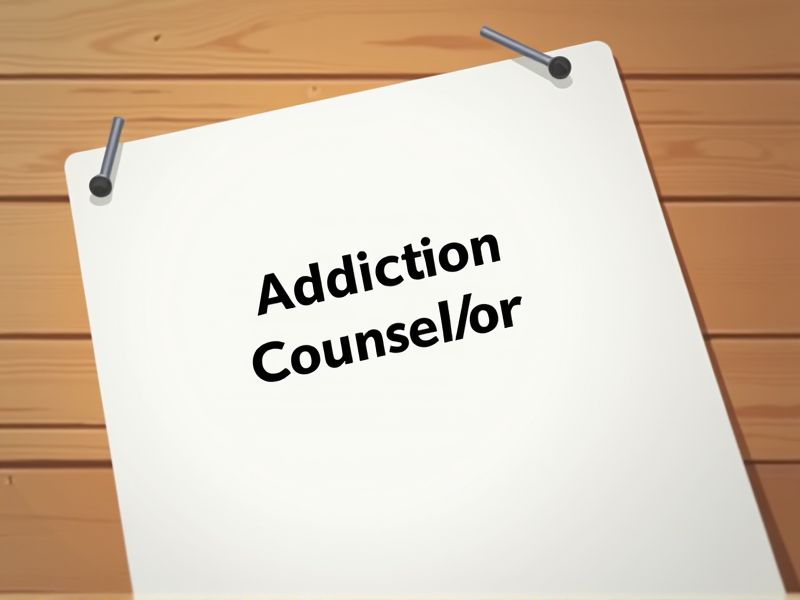
Becoming an addiction counselor requires a deep understanding of psychological, social, and biological factors contributing to addictive behaviors. Certifications validate a counselor's expertise and ensure they are equipped to address the complex needs of individuals battling addiction. They also enhance credibility and trust with clients, employers, and state regulatory bodies. Below are some important certifications you may need as an addiction counselor.
Certified Addiction Counselor (CAC)
Certified Addiction Counselors (CAC) are vital for ensuring that clients receive evidence-based, ethical, and standardized care, which improves recovery outcomes. Certification supports the counselor's professional development, as it requires ongoing education and adherence to best practices. By having a CAC, the credibility of the counseling service is enhanced, increasing trust and client engagement. Regulatory bodies and insurance providers often necessitate certification for reimbursement and compliance, making it crucial for operational viability.
National Certified Addiction Counselor (NCAC)
National Certified Addiction Counselor (NCAC) designation enhances professional credibility, incentivizing those in the field to pursue higher standards of practice. Certification ensures counselors possess a thorough understanding of evidence-based practices crucial for effective addiction treatment. This certification fosters trust among clients, families, and agencies by verifying the counselor's professional competence. As the complexity of addiction increases, having an NCAC certification equips counselors to address diverse challenges in treatment settings.
Licensed Alcohol and Drug Counselor (LADC)
Countries facing increasing substance abuse rates experience a rise in mental health disorders, resulting in a greater need for Licensed Alcohol and Drug Counselors (LADC) to provide specialized treatment. The complexity of addiction involving both physiological and psychological components means trained professionals like LADCs are necessary to offer effective interventions. Unlicensed counselors may lack the validated skills necessary for managing the nuanced aspects of addiction, potentially leading to inadequate care. With a license, LADCs are held to standardized ethical and professional guidelines, ensuring consistent, high-quality treatment for those struggling with substance use disorders.
Certified Alcohol and Drug Counselor (CADC)
Certified Alcohol and Drug Counselors (CADCs) possess specialized training that equips them with evidence-based skills crucial for effectively addressing substance use disorders. The certification ensures that counselors adhere to professional and ethical standards, fostering trust and accountability in therapeutic settings. The complexities of addiction treatment demand an informed approach, and CADCs offer tailored interventions that improve patient outcomes. Recognized qualifications like CADC instill confidence in both clients and institutions, supporting the broader goal of community health and safety.
Certified Clinical Addiction Specialist (CCAS)
Certified Clinical Addiction Specialists (CCAS) bring specialized knowledge essential for understanding the complexities of addiction, leading to more effective treatment strategies. The certification ensures adherence to evidence-based practices, improving patient outcomes. Regulatory requirements often mandate credentials like CCAS, ensuring professional standards and accountability. Society benefits from reduced healthcare costs and improved community health outcomes when addiction counselors achieve higher certification levels.
Certified Substance Abuse Counselor (CSAC)
Certified Substance Abuse Counselors (CSACs) possess specialized training that equips them to effectively address complex addiction issues. Their certification ensures adherence to evidence-based practices, which improves treatment outcomes for individuals grappling with substance use disorders. CSACs contribute to a structured therapeutic environment that helps clients navigate recovery processes safely and efficiently. Their expertise aids in reducing the risk of relapse by fostering strong coping mechanisms and supporting long-term sobriety.
Certified Behavioral Health Technician (CBHT)
Employing a Certified Behavioral Health Technician (CBHT) can enhance the effectiveness of an addiction counselor by providing specialized support and reinforcing treatment plans. The CBHT's expertise in behavioral health helps address underlying mental health issues, which can be a significant factor in addiction recovery. Through comprehensive data collection and observation, the CBHT assists in monitoring patient progress and identifying potential setbacks. The collaborative approach fosters a more holistic treatment environment, increasing the likelihood of successful recovery outcomes.
Certified Mental Health Technician (CMHT)
Certified Mental Health Technicians (CMHTs) bring specialized skills that enhance the effectiveness of addiction counselors by providing critical support in managing client care. Their training in mental health allows them to identify potential co-occurring disorders, which are common in individuals with substance use issues. CMHTs can assist in implementing treatment plans, ensuring that clients receive comprehensive and coordinated care. Furthermore, their knowledge in crisis intervention helps in addressing acute situations, contributing to a safer therapeutic environment.
Crisis Intervention Team (CIT) Certification
Crisis Intervention Team (CIT) Certification equips addiction counselors with critical skills for addressing acute mental health crises in individuals struggling with substance use disorders. This training enhances counselors' ability to de-escalate potentially volatile situations and connect individuals to appropriate resources. Data indicates that CIT-trained counselors are more confident and effective in providing immediate support and reducing harm. Certification aligns with the growing demand for integrated care approaches in behavioral health services.
Certified Peer Recovery Specialist (CPRS)
Certified Peer Recovery Specialists provide a unique perspective in addiction treatment because they have lived experience with recovery, fostering trust and empathy with clients. Their involvement can enhance engagement and retention rates in treatment programs by demonstrating attainable success through shared experiences. They offer invaluable insights into the recovery process that can complement the clinical approach of addiction counselors. Integration of their skills can lead to improved treatment outcomes, as they bridge gaps between clients and the healthcare system.
Summary
By obtaining certifications, you can significantly enhance your credibility as an addiction counselor. This often leads to increased trust from clients and potential employers, directly impacting your professional reputation. Employers may start to offer better job opportunities and potentially higher salaries. Certifications can also deepen your understanding of addiction, thereby improving your effectiveness in treating clients.
